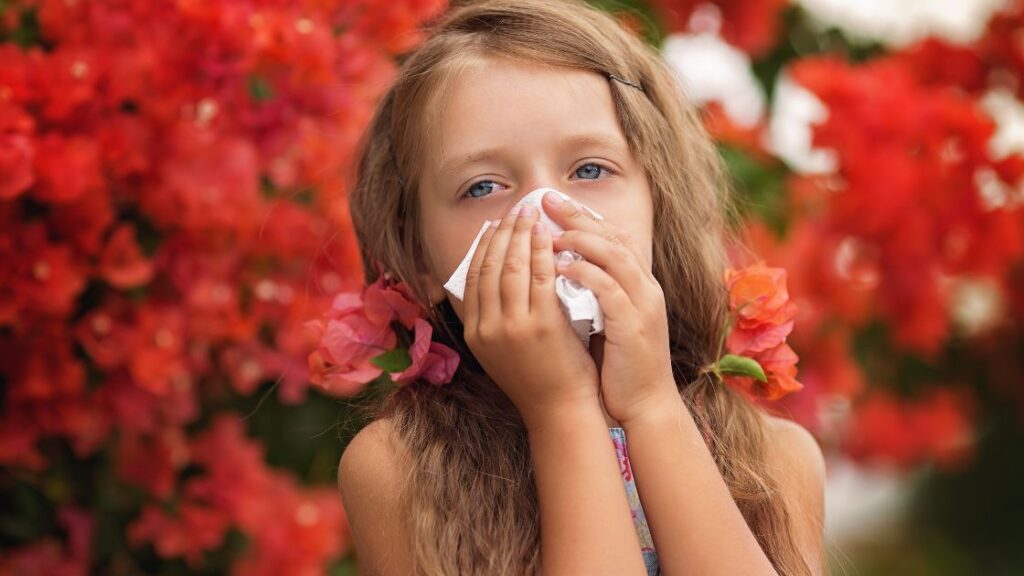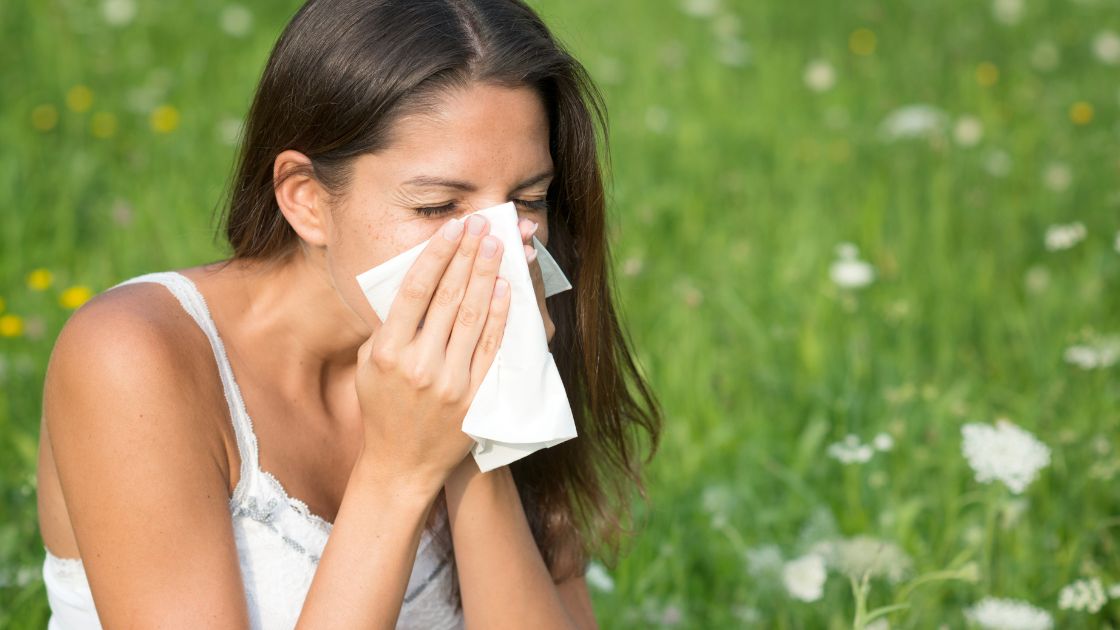- It is a real condition that occurs when the body’s immune system reacts to the proteins found in bananas as harmful invaders
- The exact cause of banana allergy is not fully understood, but genetics and cross-reactivity may play a role
- Symptoms of banana allergy can vary from mild to severe
- Diagnosis can be done through skin prick or blood tests performed by a doctor or allergist
- The best way to manage this is to avoid bananas and any foods or drinks containing bananas and to carry emergency medication
Bananas are delicious and nutritious fruits enjoyed by people of all ages.
However, some individuals may develop a banana allergy, which can cause symptoms ranging from mild to severe.
This article will discuss the causes, symptoms, diagnosis, and treatment of banana allergy.
What is a Banana Allergy?
First, have you ever heard of someone being allergic to bananas?
It might seem a little strange, but it’s a real thing.
A banana allergy occurs when your body’s immune system reacts to the proteins found in bananas as if they were harmful invaders.

The symptoms of a banana allergy can vary from person to person, but they often include things like itching, hives, swelling, and even difficulty breathing.
Sometimes, a banana allergy can be severe enough to cause anaphylaxis, a life-threatening allergic reaction requiring immediate medical attention.
Now, you might be wondering why anyone would be allergic to bananas in the first place.
Like with most allergies, it’s not entirely clear why some people develop an allergy to bananas while others don’t.
However, there are a few factors that play a role.
For example, if you have a family history of allergies, you may be more likely to develop a banana allergy.
Additionally, if you’re allergic to other fruits like kiwi, avocado, or chestnuts, you may also be more prone to developing a banana allergy.
So, what should you do if you suspect that you or someone you know might have a banana allergy?
Well, the first step is to talk to a doctor or allergist.
They can perform tests to determine whether or not you have a banana allergy and can also help you devise a plan for managing your symptoms if you do
What causes a banana allergy?
Banana allergy is caused when the immune system mistakenly identifies proteins found in bananas as harmful invaders and triggers an allergic reaction.
The exact cause of why some people develop a banana allergy while others do not is not fully understood, but several factors can contribute to its development.
One of the main factors is genetics.
An individual may be more susceptible to developing a banana allergy if there is a family history of allergies.
Cross-reactive foods
Additionally, if an individual is allergic to other fruits or vegetables, such as kiwi, avocado, or chestnuts, they may also be more likely to develop a banana allergy.
Cross-reactivity is another factor that can contribute to the development of a banana allergy.
This occurs when the proteins in bananas are similar to those found in other substances, such as latex or pollen.
If an individual is allergic to these substances, they may also develop an allergy to bananas.

Finally, it is essential to note that some individuals may experience a banana intolerance, different from a banana allergy.
A banana intolerance occurs when an individual has difficulty digesting bananas and may experience symptoms such as bloating, gas, or diarrhea after consuming them.
If you suspect that you or someone you know may have a banana allergy, it is essential to speak with a doctor or allergist for the proper diagnosis and management of symptoms.
Symptoms of banana allergy
The symptoms of banana allergy can vary from person to person and range from mild to severe.

Mild symptoms
Mild symptoms of banana allergy include:
- Itchy mouth and throat
- Tingling or swelling of the lips, tongue, and throat
- Hives or rash on the skin
- Nausea or vomiting
Moderate symptoms
Moderate symptoms of banana allergy include:
- Abdominal pain and cramping
- Diarrhea
- Runny or stuffy nose
- Sneezing
- Headache
Severe symptoms
Severe symptoms of banana allergy are rare but can be life-threatening. These include:
- Difficulty breathing
- Swelling of the face, lips, and tongue
- Drop in blood pressure
- Loss of consciousness
- Anaphylaxis
Diagnosis of banana allergy
If you suspect a banana allergy, seeing a doctor for a proper diagnosis is essential.
The doctor may perform a skin prick or blood test to determine if you are allergic to bananas.
Treatment of banana allergy
If someone suffers from a banana allergy, you’re not alone!
Although bananas are a delicious and nutritious fruit, they can cause severe allergic reactions in some people.
Symptoms of a banana allergy can range from mild to severe.
In rare cases, they can include itching and swelling of the mouth and throat, hives, difficulty breathing, and even anaphylaxis.
So, what can you do if you’re allergic to bananas?
The best action is to avoid bananas and any foods or drinks containing bananas or banana flavoring.
If you accidentally consume bananas and experience symptoms, seek medical attention immediately.

Your doctor may recommend over-the-counter or prescription medication to help manage your symptoms.
Let your family, friends, and coworkers know about your allergy.
Always carry emergency medication, such as an EpiPen, with you.
Avoiding bananas and managing allergies can help you live a safe and healthy life.
Foods to avoid
The most effective way to treat banana allergy is to avoid bananas and foods that contain bananas.
Reading food labels carefully and asking about food ingredients when dining out is essential.
Certain foods that a person with a banana allergy should avoid include:
- Tomato
- Avocado
- Chestnut
- Potato
- Kiwi
- Bell pepper
Medications
Medications such as antihistamines and epinephrine can help manage symptoms of banana allergy.
These medications should only be taken under the guidance of a doctor.
Coping with a banana allergy
Living with a banana allergy can be challenging, but some steps can be taken to cope.
Banana substitutes
Individuals with a banana allergy can use other fruits as a substitute for bananas, such as apples, pears, or kiwis.
Food labeling
It is essential to carefully read food labels and ask about food ingredients when dining out.
Anaphylaxis action plan
Individuals with severe banana allergies should have an anaphylaxis action plan in
case of a severe allergic reaction.
This plan should include steps to take in an emergency, such as using an epinephrine auto-injector.
Prevention of Risk factors for banana allergy
While there is no known way to prevent banana allergy, there are steps that can be taken to reduce the risk of developing an allergic reaction. These include:
- Introducing bananas to infants gradually and in small amounts
- Avoiding exposure to latex products if you have a latex allergy
FAQs about banana allergy
Can a banana allergy develop later in life?
Yes, a banana allergy can develop at any point in life.
Are there any foods that cross-react with bananas?
Yes, some individuals allergic to bananas may also be allergic to latex, avocados, kiwis, and chestnuts.
Can a banana allergy be outgrown?
A banana allergy can be outgrown, but this varies from person to person.
Can someone with a banana allergy eat cooked bananas?
Some individuals with banana allergies may be able to tolerate cooked bananas, but this varies from person to person.
Can a banana allergy cause anaphylaxis?
A severe allergic reaction to bananas can lead to life-threatening anaphylaxis.
Conclusion
Banana allergy is a food allergy that can cause various symptoms, from mild to severe.
It is essential to see a doctor for proper diagnosis and treatment and to avoid bananas and foods that contain bananas.
Individuals with a severe banana allergy should have an anaphylaxis action plan in case of an emergency.
Individuals with a banana allergy can reduce their risk of developing an allergic reaction by preventing exposure to bananas and other allergens.

Rosily Ryan is an accomplished health and fitness writer, editor, and health activist based in Sydney, Australia. With a wealth of knowledge and expertise in the health and nutrition industry, Rosily has established herself as a trusted authority in the field. She has contributed to several leading publications, including Pure Green Magazine, where her work has been widely recognized for its insightful analysis and engaging style.
Rosily’s passion for health and fitness is evident in her writing. Her extensive research and first-hand experience in the field allow her to provide valuable insights and practical advice to her readers. As an advocate for healthy living, Rosily has been actively involved in various health initiatives and campaigns that aim to raise awareness about the importance of physical and mental well-being.









